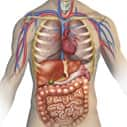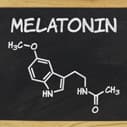
What's Hot
What's Hot
News flashes are posted here frequently to keep you up-to-date with the latest advances in health and longevity. We have an unparalleled track record of breaking stories about life extension advances.
Higher omega-3 fatty acid levels correlate with reduced rate of cognitive decline in Alzheimer's disease patients
 September 30 2015. An article published online on September 4, 2015 in the Journal of Alzheimer's Disease reveals a decreased rate of cognitive deterioration in Alzheimer's disease patients who had higher levels of plasma omega-3 fatty acids.
September 30 2015. An article published online on September 4, 2015 in the Journal of Alzheimer's Disease reveals a decreased rate of cognitive deterioration in Alzheimer's disease patients who had higher levels of plasma omega-3 fatty acids.
The study included 174 men and women with Alzheimer's disease who were randomized to receive a supplement that provided 150 milligrams (mg) eicosapentaenoic acid (EPA) and 430 mg docosahexaenoic acid (DHA) per day, or a placebo for six months, followed by a six month period during which all participants were supplemented with omega-3. Plasma omega-3 fatty acid levels and cognitive performance were assessed at the beginning of the study, and at six and twelve months.
Increasing plasma EPA, DHA and docosapentaenoic acid (DPA) levels over time were associated with preservation of cognitive function. Associations were significant for word recall and delayed word recall, which are categorized as episodic memory functions. Adjusted analysis of the data failed to find an association of the effect with gender.
"Since our study suggests dose-response relationship between plasma levels of omega-3 fatty acids and preservation of cognitive functioning, future omega-3 fatty acid trials in patients with mild Alzheimer's disease should consider exploring graded (and body weight adjusted) doses of omega-3 fatty acids " suggest authors Maria Eriksdotter of the Karolinska Institutet and her colleagues. "This conclusion is supported by recent findings from cardiovascular research, showing that the plasma levels achieved after graded dosings of omega-3 fatty acids are important for the clinical effect."
—D Dye
Aspirin use associated with improved GI cancer survival
 September 28 2015. The 2015 European Cancer Congress was the site of a presentation by Martine Frouws, MD, of the finding of longer overall survival associated with use of aspirin following diagnosis of gastrointestinal (GI) cancer.
September 28 2015. The 2015 European Cancer Congress was the site of a presentation by Martine Frouws, MD, of the finding of longer overall survival associated with use of aspirin following diagnosis of gastrointestinal (GI) cancer.
Dr Frouws, of Leiden University Medical Centre in The Netherlands, analyzed data from 13,715 men and women diagnosed with a GI cancer from 1998 to 2011. Aspirin was used prior to cancer diagnosis by 30.5% of the subjects and by 8.3% after being diagnosed.
Twenty-eight percent of the patients were still alive for at least five years following diagnosis over a median follow-up period of 48.6 months. Among those who used aspirin after diagnosis, the chance of surviving was double that of nonusers.
"Medical research is focusing more and more on personalized medicine, but many personalized treatments are expensive and only useful in small populations," Dr Frouws observed. "We believe that our research shows quite the opposite - it demonstrates the considerable benefit of a cheap, well-established and easily obtainable drug in a larger group of patients, while still targeting the treatment to a specific individual."
"Aspirin may serve as the magic bullet because it can target and prevent ischemic heart disease, cancer and Alzheimer's disease, the three major health catastrophes in the third millennium," noted European Society for Medical Oncology spokesperson Nadir Arber, MD."Dr Frouws and her colleagues tell us that not only can aspirin prevent disease, but low dose aspirin is important as an adjunct therapy for gastrointestinal cancers. The appropriate dosage and duration of aspirin use and risk/benefit ratios of aspirin use remain to be determined but, in the area of precision medicine, genetic information and blood and/or urinary biomarkers may help in tailoring treatment to those who will benefit most, while limiting adverse effects."
—D Dye
Selenium plus CoQ10 supplementation associated with reduced age-related increase in inflammatory biomarkers
 September 25 2015. A secondary analysis of a randomized trial reported on September 16, 2015 in PLOS One found a reduction in C-reactive protein (CRP) and a lower rate of increase in sP-selectin in men and women supplemented with coenzyme Q10 (CoQ10) and selenium in comparison with those who received a placebo. C-reactive protein is a marker of systemic inflammation and cardiovascular risk. SP-selectin is a cell adhesion molecule that is also involved in inflammation and is a biomarker for atherosclerosis as well.
September 25 2015. A secondary analysis of a randomized trial reported on September 16, 2015 in PLOS One found a reduction in C-reactive protein (CRP) and a lower rate of increase in sP-selectin in men and women supplemented with coenzyme Q10 (CoQ10) and selenium in comparison with those who received a placebo. C-reactive protein is a marker of systemic inflammation and cardiovascular risk. SP-selectin is a cell adhesion molecule that is also involved in inflammation and is a biomarker for atherosclerosis as well.
The trial included 443 participants between the ages of 70 to 88 years who enrolled from 2003-2010. Two hundred twenty-one subjects received 200 micrograms selenium plus 200 milligrams CoQ10 per day, and 222 subjects received a placebo for 48 months. Blood samples collected at the beginning and end of the treatment period were analyzed for CRP and sP-selectin. Participants were followed for an average of 5.2 years, during which any deaths were recorded.
Among those who received a placebo, CRP levels averaged 4.8 nanograms per milliliter (ng/mL) at the beginning of the treatment period and 5.1 ng/mL at the study's conclusion, while CRP declined from an average of 4.15 ng/mL to 2.1 ng/mL among those who received selenium and CoQ10. SP-selectin increased from 56.6 milligrams per milliliter (mg/mL) to 72.3 mg/mL in the placebo group, in contrast with an increase of 55.9 mg/mL to just 58.0 mg/mL in the selenium/CoQ10 group. Cardiovascular deaths in the supplemented group were approximately half the number of those that occurred in the placebo group.
"The mechanism behind this effect is probably the antioxidative effects of both selenium and coenzyme Q10," authors Urban Alehagen and colleagues write. "As previously reported, reduced cardiovascular mortality has been demonstrated, which is probably associated with the decreased oxidative state in those receiving active supplementation."
—D Dye
Vitamin D levels predict ICU discharge destination
 September 23 2015. The December 2015 issue of the Annals of Intensive Care contains the finding of Harvard researchers of an association between higher vitamin D levels and a greater likeliness of being discharged to one's home following admission to a surgical intensive care unit (ICU).
September 23 2015. The December 2015 issue of the Annals of Intensive Care contains the finding of Harvard researchers of an association between higher vitamin D levels and a greater likeliness of being discharged to one's home following admission to a surgical intensive care unit (ICU).
"In hospitalized patients, discharge destination is a potential early indicator of disability-free survival, and the ability to predict or identify modifiable risk factors for discharge destination may improve patient-centered health outcomes," note authors Karolina Brook and her associates.
The study included 300 critically ill patients admitted to surgical ICUs at Massachusetts General Hospital. Plasma 25-hydroxyvitamin D levels were assessed within 24 hours of ICU admission. Fifty-nine percent of the subjects were discharged to their homes and the remainder of the patients died in the ICU or were transferred to non-home destinations, including wards at Massachusetts General, rehabilitation hospitals or other healthcare facilities.
Patients with plasma 25-hydroxyvitamin D levels lower than 20 nanograms per milliliter (ng/mL) were over 2.5 times more likely to be discharged to a non-home destination than those whose levels were higher. Compared to patients with vitamin D levels of less than 20 ng/mL, more than the twice the amount of subjects with higher levels were supplementing with 1,000 to 4,000 international units (IU) of vitamin D per day during their hospitalization.
"Our results suggest that vitamin D status may be a modifiable risk factor for discharge destination in surgical ICU patients," the authors conclude. "Given that suboptimal 25-hydroxyvitamin D levels are highly prevalent in ICU patients, further prospective studies are needed to validate our findings, to assess the potential benefits of optimizing 25-hydroxyvitamin D levels in critical illness, and to identify the mechanism by which vitamin D may impact patient-oriented outcomes in ICU patients."
—D Dye
Organs age differently
 September 21 2015. Aging may be one thing to your liver and another to your brain, according to research published online on September 17, 2015 in Cell Systems.
September 21 2015. Aging may be one thing to your liver and another to your brain, according to research published online on September 17, 2015 in Cell Systems.
Researchers at the European Molecular Biology Laboratory (EMBL), the Salk Institute and the University of California compared brain and liver cells of six month old rats to those of 24 month old animals. They found that aging equally affected immune and stress responses as well as inflammation. However, metabolic processes were mainly impacted in the liver, and in the brain, aging mainly affected signaling processes. "We chose to compare brain and liver because these two organs have very different capacities for self-renewal," stated co-corresponding author Martin Hetzer, of the Salk Institute. "The liver has a very high regeneration rate, so even in an old animal - or person - most of the molecules in liver cells will actually be relatively young. In the brain, it's the opposite: in our previous work we have shown that many sets of molecules in the brain are effectively there for life."
"We found that in brain, age-related changes very often have to do with the loss of molecules that help signals to spread among neurons," reported lead researcher Martin Beck of EMBL. "This could explain why old rats have a reduced ability to form new connections between neurons, as well as other traits observed in the aging brain. And it is very similar to what has been found in previous studies that have looked at gene expression in humans."
"This research may shed new light on the molecular mechanisms underlying age-related diseases, enabling the identification of risk factors to predict which individuals are most susceptible based on their genetic makeup," Dr Beck noted. "In the end, a better understanding of the molecular mechanisms of aging could lead to the development of novel therapies to prevent or treat a range of age-related diseases."
—D Dye
Study suggests benefit for resveratrol in Alzheimer's disease
 September 18 2015. The results of a randomized, double-blind trial reported on September 11, 2015 in the journal Neurology reveal an association between supplementation with resveratrol and improvement in markers of Alzheimer's disease.
September 18 2015. The results of a randomized, double-blind trial reported on September 11, 2015 in the journal Neurology reveal an association between supplementation with resveratrol and improvement in markers of Alzheimer's disease.
One hundred-nineteen men and women diagnosed with probable Alzheimer's disease were randomized to receive a placebo or 500 milligrams (mg) synthetic resveratrol daily, with a dose increase of 500 mg every thirteen weeks that ended with a 1,000 mg twice per day dose at the end of the 52-week study. Plasma and cerebral spinal fluid were analyzed for resveratrol and its metabolites, and amyloid beta 40 and 42 at the beginning and end of the study.
While plasma and cerebrospinal amyloid beta 40 levels had significantly decreased among the placebo group by the end of the study, they remained relatively stable among those who received resveratrol. "A decrease in amyloid beta 40 is seen as dementia worsens and Alzheimer's disease progresses; still, we can't conclude from this study that the effects of resveratrol treatment are beneficial," explained lead author R. Scott Turner, MD, PhD, who is the director of the Memory Disorders Program at Georgetown University Medical Center. "It does appear that resveratrol was able to penetrate the blood brain barrier, which is an important observation. Resveratrol was measured in both blood and cerebrospinal fluid."
"Given safety and positive trends toward effectiveness in this phase 2 study, a larger phase 3 study is warranted to test whether resveratrol is effective for individuals with Alzheimer's -- or at risk for Alzheimer's," he added.
—D Dye
Decreased vitamin D levels predict accelerated cognitive decline
 September 16 2015. On September 14, JAMA Neurology reported an increase in the rate of cognitive decline in association with reduced vitamin D levels in older men and women.
September 16 2015. On September 14, JAMA Neurology reported an increase in the rate of cognitive decline in association with reduced vitamin D levels in older men and women.
The study included 382 participants in the University of California at Davis Alzheimer's Disease Center longitudinal community diversity study. Serum 25-hydroxyvitamin D levels and cognitive function were assessed upon enrollment. Dementia was present among 17.5% of the subjects, 32.7% had mild cognitive impairment and the remainder were cognitively normal. Three hundred eighteen subjects had two or more cognitive evaluations over an average of 4.8 years, allowing for long term evaluation.
Vitamin D levels at the beginning of the study were lower among those with dementia compared to subjects who were normal or had mild cognitive impairment. The rate of decline in episodic memory and executive function was significantly greater among participants who were deficient in vitamin D compared to those with adequate status. "We expected to see declines in individuals with low vitamin D status," commented coauthor Charles DeCarli, MD. "What was unexpected was how profoundly and rapidly [low vitamin D] impacts cognition."
"This is a vitamin deficiency that could easily be treated and that has other health consequences," he added. "We need to start talking about it. And we need to start talking about it, particularly for people of color, for whom vitamin D deficiency appears to present an even greater risk."
"Independent of race or ethnicity, baseline cognitive abilities and a host of other risk factors, vitamin D insufficiency was associated with significantly faster declines in both episodic memory and executive function performance," stated lead author Joshua W. Miller, PhD. "This work, and that of others, suggests that there is enough evidence to recommend that people in their 60s and older discuss taking a daily vitamin D supplement with their physicians."
—D Dye
Melatonin finding could benefit MS patients
 September 14 2015. The September 10, 2015 issue of the journal Cell published the discovery of researchers at Boston's Brigham and Women's Hospital of an association between higher wintertime melatonin levels and a decrease in multiple sclerosis (MS) symptoms.
September 14 2015. The September 10, 2015 issue of the journal Cell published the discovery of researchers at Boston's Brigham and Women's Hospital of an association between higher wintertime melatonin levels and a decrease in multiple sclerosis (MS) symptoms.
"The rise in the past 50 years in the incidence of autoimmune disorders has reached an epidemic proportion and cannot be accounted by genetic risk only," write authors Francisco Quintana, PhD, and colleagues. "Thus, increasing attention is being paid to environmental factors and their impact in the immune response and T cell differentiation in particular."
Acting on the finding of improvement among 139 relapsing remitting MS patients during autumn and winter, Dr Quintana and his associates investigated the effects of melatonin in a mouse model and observed an amelioration of symptoms among animals that received the hormone. In human and mouse T cells, melatonin blocked the differentiation of pathogenic Th17 cells and boosted protective Tr1 cells. "We found that melatonin has a protective effect," stated Dr Quintana who, along with Mauricio F. Farez, is a corresponding author of the report. "It dampens the immune response and helps keep the bad guys - or pathogenic T cells - at bay."
"In the future, melatonin or its derivatives may be used in MS patients after appropriate clinical trials are conducted and dosage is established," Dr Quintana predicted.
"Here, we report that melatonin, whose levels show seasonal variability, control the balance between pathogenic and regulatory T cells," the authors conclude. "Future studies should investigate the effects of melatonin on innate immune cells in MS patients and also its role in inflammatory bowel disease and other immune-mediated disorders."
—D Dye
Luteolin may protect against breast cancer in women treated with synthetic HRT
 September 11 2015. An article published on August 22, 2015 in the journal Springer Plus reveals a protective effect for luteolin, a compound that occurs in such plant foods as celery, broccoli, thyme and parsley, in women at increased risk of breast cancer due to the use of the synthetic hormone progestin.
September 11 2015. An article published on August 22, 2015 in the journal Springer Plus reveals a protective effect for luteolin, a compound that occurs in such plant foods as celery, broccoli, thyme and parsley, in women at increased risk of breast cancer due to the use of the synthetic hormone progestin.
When administered to cultured breast cancer cells, luteolin resulted in a reduction in breast cancer cell viability. The researchers also observed a decrease in the secretion of progestin-dependent vascular endothelial growth factor (VEGF, which is involved in angiogenesis: the formation of new blood vessels). Luteolin additionally blocked the acquisition in breast cancer cells of progestin-induced stem cell-like properties that make these cancer cells more resistant to destruction.
When progestin-dependent tumors were grafted into mice, luteolin decreased VEGF and blood vessel density.
"Most older women normally have benign lesions in breast tissue," observed lead researcher Salman Hyder, who is the Zalk Endowed Professor in Tumor Angiogenesis and professor of biomedical sciences in the College of Veterinary Medicine and the Dalton Cardiovascular Research Center at the University of Missouri. "These lesions typically don't form tumors until they receive the 'trigger'-- in this case, progestin--that attracts blood vessels to cells essentially feeding the lesions causing them to expand."
Dr Hyder and his colleagues plan additional studies of luteolin which they hope will provide enough evidence to warrant human trials of the compound in women who have used synthetic hormone replacement. "Our studies provide evidence that luteolin has the potential to disrupt angiogenesis and thereby prevent the growth development of progestin-driven tumors," they conclude. "It is therefore essential that we further investigate the mechanisms by which luteolin moderates progestin effects in order to fully exploit its therapeutic potential."
—D Dye
Supplements could reduce health disparities
 September 9 2015. The August 2015 issue of the Journal of Health Care for the Poor and Underserved reports disparities between African Americans and Caucasians in the intake of several nutrients that could be remedied, in part, by supplementation.
September 9 2015. The August 2015 issue of the Journal of Health Care for the Poor and Underserved reports disparities between African Americans and Caucasians in the intake of several nutrients that could be remedied, in part, by supplementation.
By analyzing information obtained in the National Health and Nutrition Examination Survey 2007–2010, Dr Victor Fulgoni and colleagues discovered significant disparities between non-Hispanic African American and Caucasian participants in the average intake of vitamins A, C and D; calcium, magnesium and phosphorus.
The data revealed that 45.9% of non-Hispanic African Americans over the age of four years had an intake of vitamin A that was below the Estimated Average Requirement (EAR), in comparison with 28.4% of Caucasians. For vitamin D, calcium and magnesium, 82.4%, 53.7% and 63.0% of African Americans were below the EAR, compared to 63.5%, 29.4% and 41.9% of Caucasians.
"Nutrient shortfalls have been an issue addressed through dietary guidance for decades to encourage Americans to meet recommended levels," stated Dr Fulgoni. "However, this analysis shows that little change is happening in nutrient intake and specifically, non-Hispanic blacks are at particular risk with significant nutrient shortfalls."
"We have supported many studies on nutrient shortfalls in the U.S. population because we continue to see how important nutrient adequacy is in supporting health and wellness," added coauthor James Brooks. "It is important to improve consumption of nutrient-rich foods as the 2015 Dietary Guidelines Advisory Committee has recommended in its report; however, dietary supplements can also play a role in meeting nutrient needs, especially for magnesium and vitamin D."
The authors suggest the initiation of educational programs for health professionals concerning the role of supplements to achieve nutrient adequacy among all populations. "As dietary and nutrient recommendations evolve, specific strategies to increase consumption of vitamins and minerals in the U.S. non-Hispanic Black population should be considered," they conclude.
—D Dye

